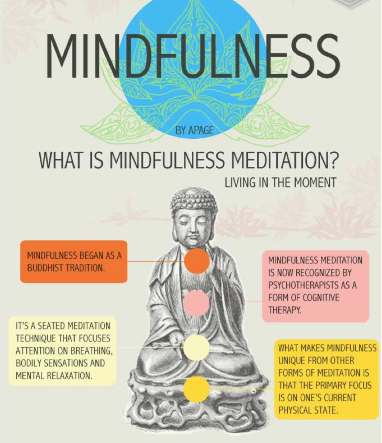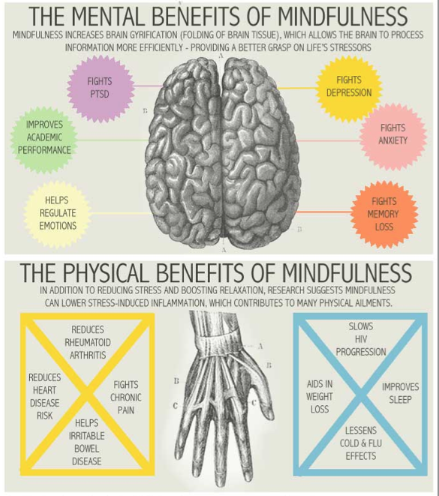Does mindfulness have a place in schools?
“There are only two ways to live your life. One is as though nothing is a miracle. The other is as though everything is a miracle.”
Mindfulness at its most basic concept is the quality or state of being conscious or aware of something. It is associated heavily with breathing techniques and meditation and, until recently, was not a particularly Western concept.
Throughout history the practice of mindfulness is synonymous with religion, particularly Hinduism and Buddhism; though there are links to all major religions. In modern society however mindfulness has been associated with scientific studies, forms of medical treatment, and as a tool to improve general living.
Studies show that mindfulness can help with a myriad of things, including: stress, managing pain, anxiety, depression, sleep issues, controlling substance abuse problems, and overcoming/managing personality disorders. While some may find this somewhat questionable, the backing of scientific and clinical studies would suggest that it can in fact be a real asset to medicine.
But what else can this apparently miraculous practice bring to the table? Studies suggest that mindfulness can boost many different characteristics, depending on how you approach it.
- calmness
- creativity
- happiness
- tenacity
- memory
- compassion
- heightened awareness
- self-control
- problem solving
- decision making
All of these have been noted as common traits that mindfulness exercises can improve.
With a steady increase in popularity, mindfulness is obviously making a lasting impression in today's tech-fuelled society. But what practical applications could mindfulness education have in our classrooms? Are there positive benefits that could be reaped from the odd workshop here and there? Or could these benefits lead to mindfulness being on the Curriculum - fitting comfortably perhaps in subjects like PHSE (Personal, Health and Social Education)?
Interestingly a recent UK Government drive, with Nicky Morgan as Secretary of State for Education at the helm, was to promote 'Character Education'. This promotion saw character traits being actively taught to young learners under the premise it will make them more resilient in the real world. These traits included:
- perseverance, resilience and grit
- confidence and optimism
- motivation, drive and ambition
- neighbourliness and community spirit
- tolerance and respect
- honesty, integrity and dignity
- conscientiousness, curiosity and focus
Notice some similarities? Amazingly, those characteristics identified as being a essential to the futures of coming generations closely resemble those that studies suggest mindfulness can help deliver. Advocates for mindfulness will surely argue a touch of serendipity to this.
Evidence is beginning to stack to one side of this question. With the UK Government wishing to provide young learners with certain traits, and mindfulness a seemingly perfect way to deliver these traits, it would be obvious to say that there is a place for mindfulness in schools.
How to be More Mindful Every Day
Getting into the practise of mindfulness is actually quite easy. It does require some discipline and can take a while to master, but by following 5 basic principles it can easily integrate into your day-to-day living. Through learning these 5 steps it becomes clearer just how you could adapt mindfulness to be used in learning.
- Put your phone on Airplane Mode: It is amazing just how distracting a phone can be. How many times have you quickly checked your phone when talking to a friend or trying to focus on a task? Remove the temptation, even if it just for 30 minutes a day, and give your full attention to what you are doing.
- Connect with nature: You don't need to go full Bear Grylls, but doing something like going for a walk in the woods is an effective way to reconnect with the physical world. Take notice of what is around you and be aware of how your thoughts wonder. Remember: mindfulness is about being present in the moment.
- Get more sleep: This is essential. Being tired makes being present that much harder. It may be difficult for some but make the aim to get a full eight hours each night. Believe us, you will notice a difference. It goes without saying that having young learners adopt this same philosophy will really help them during school hours.
- Meditate: Forget the cross-legged, five-hour stint under the torrent of a waterfall. No, meditation requires you to be comfortable and undistracted. Sitting in a dark room is a perfect start. Begin by trying to sit in silence for 5 minutes and focus on your breathing, slowly in and out. Your mind will wonder but this is fine. You aren't trying to find Nirvana; you are focussing on being in the moment.
- Eat slowly and savour your food: Eating for many now is an automatic process. How many of us chew and think, "Wow! This is delicious"? During your next meal think about each bite you take: the texture and flavours. Chew slowly and take note of what you can taste. By learning this process you are beginning to master the art of being present.
As a final note, there are loads of amazing books, apps and online sources for mindfulness. Don't be afraid to try it and don't make the excuse of having no time. Meditation, for example, can just be 5 minutes a day. Instead of hitting the snooze button in the morning try sitting up in bed and giving the meditation a go! This could be the key to unlocking more happiness and reducing stress in our hectic lives.
We would love to hear your views on mindfulness and whether it could benefit young learners. Comment below.




